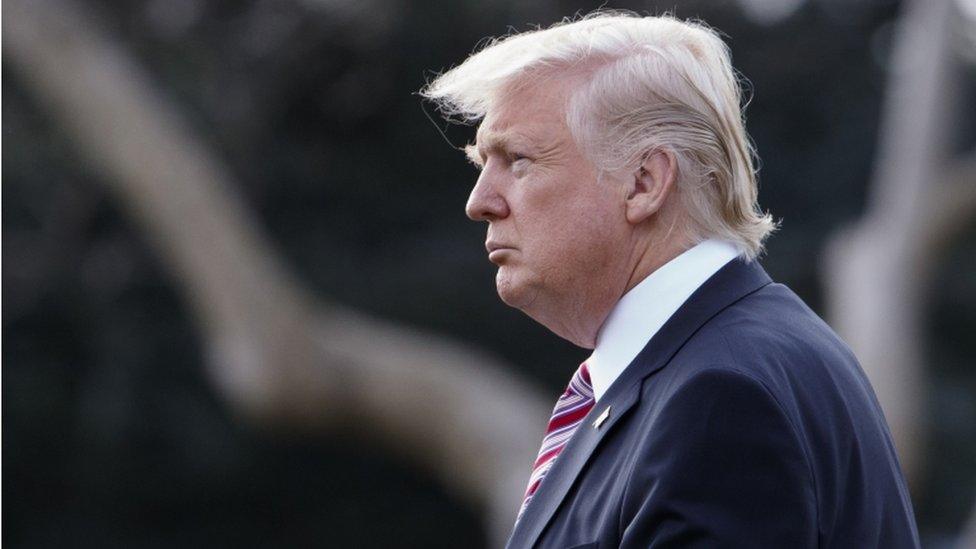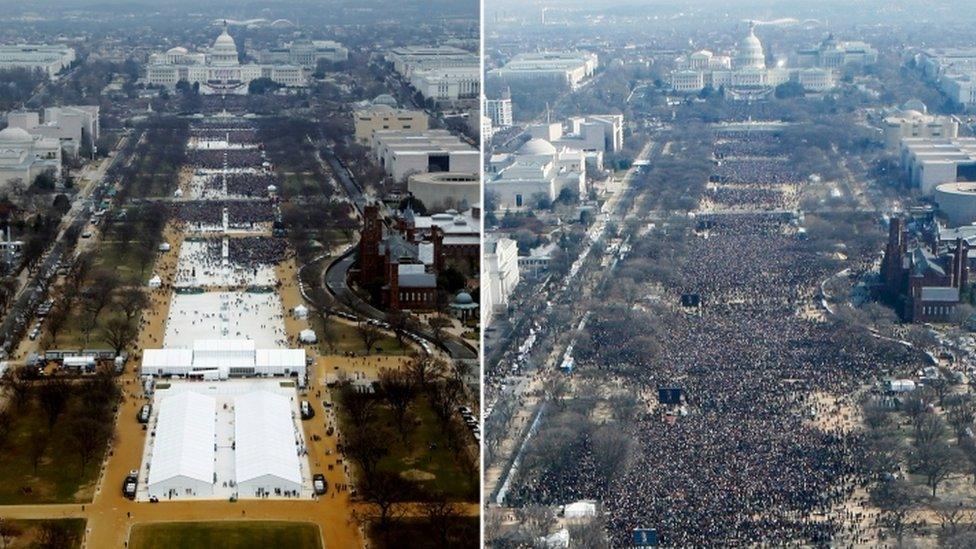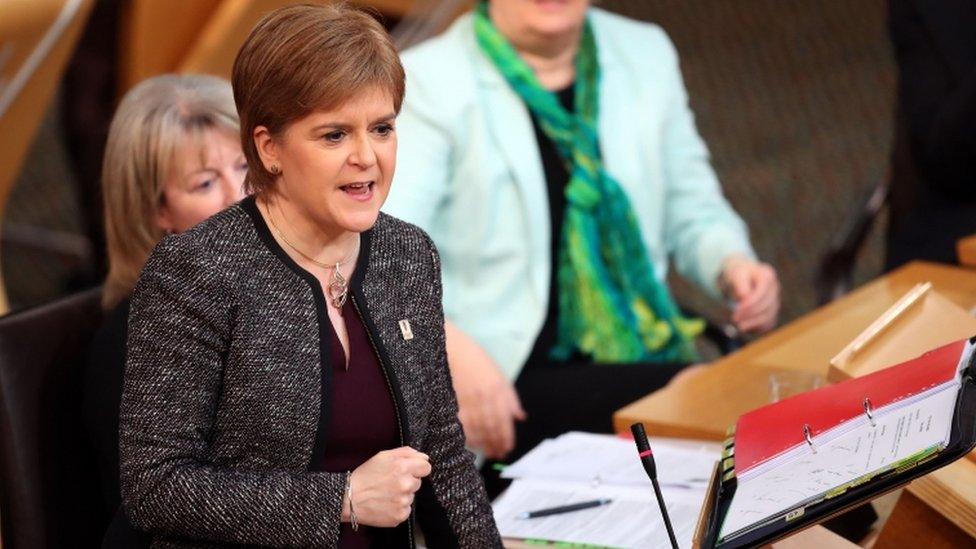Alternative facts and qualified truths
- Published

The phrase "alternative fact" entered the political lexicon after being used by Donald Trump's advisor, Kellyanne Conway
It is intriguing to note how phrases enter the lexicon. Take "alternative fact" for example. It was initially used by a member of Team Trump to counter claims regarding the inaugural crowd which greeted the new president.
The suggestion was that the grouping of enthusiasts gathered to hail the new chief was differently numbered from those who mustered to welcome President Obama (at his first outing.) A rival depiction. A distinct vision. Ok, smaller.
No, no, said Kellyanne Conway: President Trump's analysts were simply offering "alternative facts" when they said that the numerical zeal greeting the new guy had been the biggest and happiest crowd on the planet since Dundee United paraded the Scottish Cup in the City Square. (C'mon, I need some football cheer - and, currently, it's mostly historical.)
But "alternative fact" has now become code for "lie". At Westminster, it has long been the case that you cannot say that an Honourable Member has departed from the strict truth.
Winston Churchill deftly got round this by suggesting that a fellow MP had pursued "a terminological inexactitude". By the time the House worked out what he had said, the wily Winston was in the tea room.

There has been controversy in the US over photographs contrasting crowds at the Mr Trump's inauguration (left) with those at Barak Obama's
Today Labour's Kezia Dugdale pursued a comparable path. Being a thoroughly modern woman, Ms Dugdale drew upon current usage. She suggested that the first minister was reliant upon "alternative facts" in defending her budget.
Now another intriguing element arises here. (That's two, a columnar record.) With the presidential crowd, it would presumably have been possible, albeit with a little effort, to count the competing crowds. "One, two, three…..oh, for any sake, stand still while I conduct a popularity census!!"
In short, these are potentially absolute, external, discreet facts. With the issue raised by Ms Dugdale, things are rather different. One enters the world of relative, qualified truth.
Labour's point is that £327m has been cut from the budget for local authorities. The Scottish government's retort is that £200m has been added to local services. That includes, for example, money despatched directly to schools.
Both sides can cite documentary evidence for their claims. Both sides assert their points with rising vigour although, to date, Labour's argument has been followed with perhaps a little more vigour.

Nicola Sturgeon said talks over her government's budget were ongoing with opposition parties
That is because Scottish Ministers are fighting on a range of fronts - while Labour has been singing one song, the Anthem of the Missing Millions. (I know, I know, sounds a bit Brechtian but there you are.)
Ms Dugdale and chums say what they are going to say, say it, then sum up what they have just said. Repetitive but potent.
For the Tories, Ruth Davidson also voiced discontent with the ministerial record, notably on health. She raised the case of an individual patient - then disarmingly declared that she did not expect the FM to comment on individual cases.
Ms Sturgeon took her at her word and turned the attack around, arguing that the NHS and other budgets would suffer should the Scottish government follow the Tory idea of a substantial effective tax cut for higher earners.
Is there a deal pending on the budget? I still think there will be - but it is not there yet. The Greens want concessions on spending but also on tax; in essence a higher imposition upon upper earners.
Ministers are presently - repeat, presently - keen to stick to what they regard as a balanced package.
Bargaining seriously
The Liberal Democrats want concessions on spending: an extra £400m on mental health, police, education and Northern Isles transport.
The talk is that ministers are presently offering around £50m to £70m. A sizeable sum - but well short of the demands. One SNP source said the Lib Dem demands were "not at the margins, rather they would change the budget substantially."
Hence Willie Rennie's comment that it was not "looking good" for a deal next week when the budget faces its first key vote in parliament.
Ms Sturgeon stressed that her ministers were still bargaining seriously with the Lib Dem leader - while reminding him rather bluntly that her party received much more popular support than his.
Tension too at Holyrood today over Brexit. The Scottish Secretary David Mundell met Scottish Ministers. After the talks, said Scottish Ministers described them as a waste of time in that Mr Mundell had not arrived with details regarding the post-Brexit allocation of powers, as they claim they had been led to expect.
Mr Mundell seemed benignly content at the disquiet he had caused. He told his interlocutors that there was no question of Holyrood being given a vote on the Article 50 trigger bill which was published at Westminster today.
But there would be a vote through a Legislative Consent Motion for the eventual Great Repeal Bill which will, in effect, unpick EU law and repatriate it to these islands.
And were the Scottish Ministers humbly content with this? Yes, thought you might say that. Mike Russell voiced suspicion over the repatriation of powers. Would the UK seek to grab control of, say, fishing and farming when the European element of these devolved powers is returned?
He suspects they might. With a degree of justification. I think UK Ministers may want, for example, to consider a Common Agricultural Policy - for the UK, albeit with a distinctive Scottish element. But Mr Mundell is adamant that Holyrood will gain new powers.
Alternative facts, anyone?